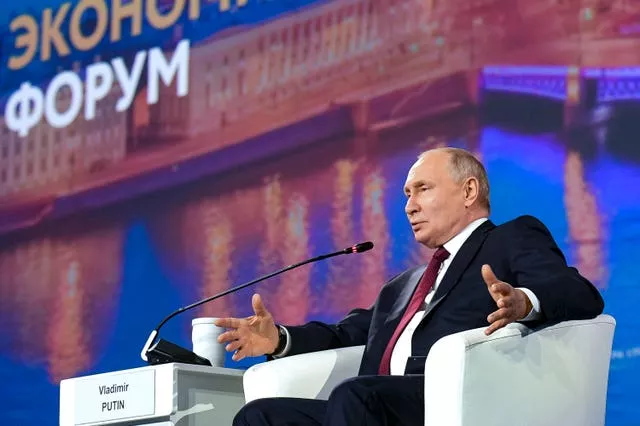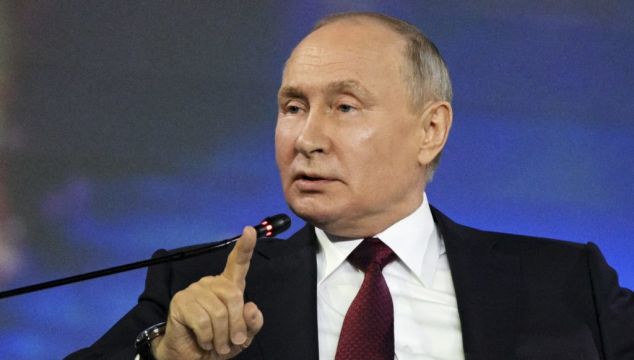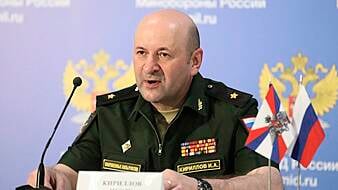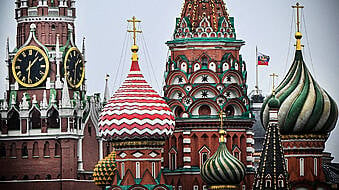Russian president Vladimir Putin has talked up Russia’s prospects at the country’s main international economic forum despite heavy international sanctions imposed because of the war in Ukraine.
Western officials and investors steered clear of this year’s St Petersburg International Economic Forum that for decades has been Russia’s premier event for attracting foreign capital and is sometimes likened to the Davos World Economic Forum.
The Kremlin also banned journalists from countries that Russia regards as “unfriendly” from covering the proceedings that began on Wednesday and continue until Saturday.

Moscow has imposed that designation on scores of countries including the United States, Canada, European Union members and Australia in connection with sanctions imposed over the fighting in Ukraine.
Nonetheless, Mr Putin said at the forum’s plenary session: “We haven’t turned on to the self-isolation path.
“Quite the opposite — we have widened contacts with reliable and responsible partners in the countries and regions that serve as the engine, the drivers of the world’s economy today.
“I’d like to reiterate: these are the markets of the future, everyone clearly understands it.”
Officials did not provide a list of foreign businesses attending but the programme for the more than 100 panel discussions showed a marked majority of speakers hailing from Russia.
While one of the sessions listed in the programme touted Russia as a “global tech hub,” descriptions of others tacitly admitted Moscow’s growing economic isolation since its troops moved into Ukraine last February.
Mr Putin also vehemently defended Russia’s sending troops into Ukraine and repeated his claims that the Ukrainian government is a neo-Nazi regime, despite Ukrainian president Volodymyr Zelenskiy’s Jewish roots.
“My Jewish friends say that Zelenskiy is not a Jew, but a shame to the Jewish people,” Mr Putin said.
Mr Putin also confirmed that Russia has deployed its first tranche of tactical nuclear weapons in Belarus, a plan that was announced earlier, but he gave an ambiguous assessment of Russia’s willingness to use them.
“Nuclear weapons are created to ensure our security in the broadest sense of the word and the existence of the Russian state. But we, firstly, do not have such a need,” Mr Putin said.
But he added: “Extreme means may be used if there is a threat to Russia’s statehood. In this case, we will certainly use all the forces and means that the Russian state has at its disposal.”
Mr Putin also rejected the possibility of reducing Russia’s nuclear arsenal, chuckling mildly as he used a vulgarity: “We have more such weapons than the Nato countries. They know about it, and all the time we are being persuaded to start negotiations on reductions. The hell with them, you know, as our people say.”







